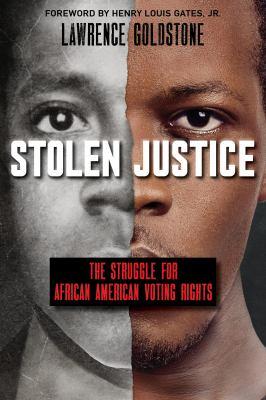
Stolen justice : the struggle for African-American voting rights
Following the Civil War, the Reconstruction era raised a new question to those in power in the US: Should African Americans, so many of them former slaves, be granted the right to vote? In a bitter partisan fight over the legislature and Constitution, the answer eventually became yes, though only after two constitutional amendments, two Reconstruction Acts, two Civil Rights Acts, three Enforcement Acts, the impeachment of a president, and an army of occupation. Yet, even that was not enough to ensure that African American voices would be heard, or their lives protected. White supremacists loudly and intentionally prevented black Americans from voting -- and they were willing to kill to do so. In this vivid portrait of the systematic suppression of the African American vote, author Lawrence Goldstone traces the injustices of the post-Reconstruction era through the eyes of incredible individuals, both heroic and barbaric, and examines the legal cases that made the Supreme Court a partner of white supremacists in the rise of Jim Crow. Though this is a story of America's past, Goldstone brilliantly draws direct links to today's creeping threats to suffrage in this important and, alas, timely book
Available Copies by Location
| Location | |
|---|---|
| Stamford | Available |
Browse Related Items
- ISBN: 9781338323481
- Physical Description 257 pages : illustrations ; 22 cm
- Edition First edition.
- Publisher [Place of publication not identified] : [publisher not identified], 2020.
Content descriptions
| Bibliography, etc. Note: | Includes bibliographical references and index. |
| Target Audience Note: | Ages 12+. Grades 9-12. |
Additional Information



